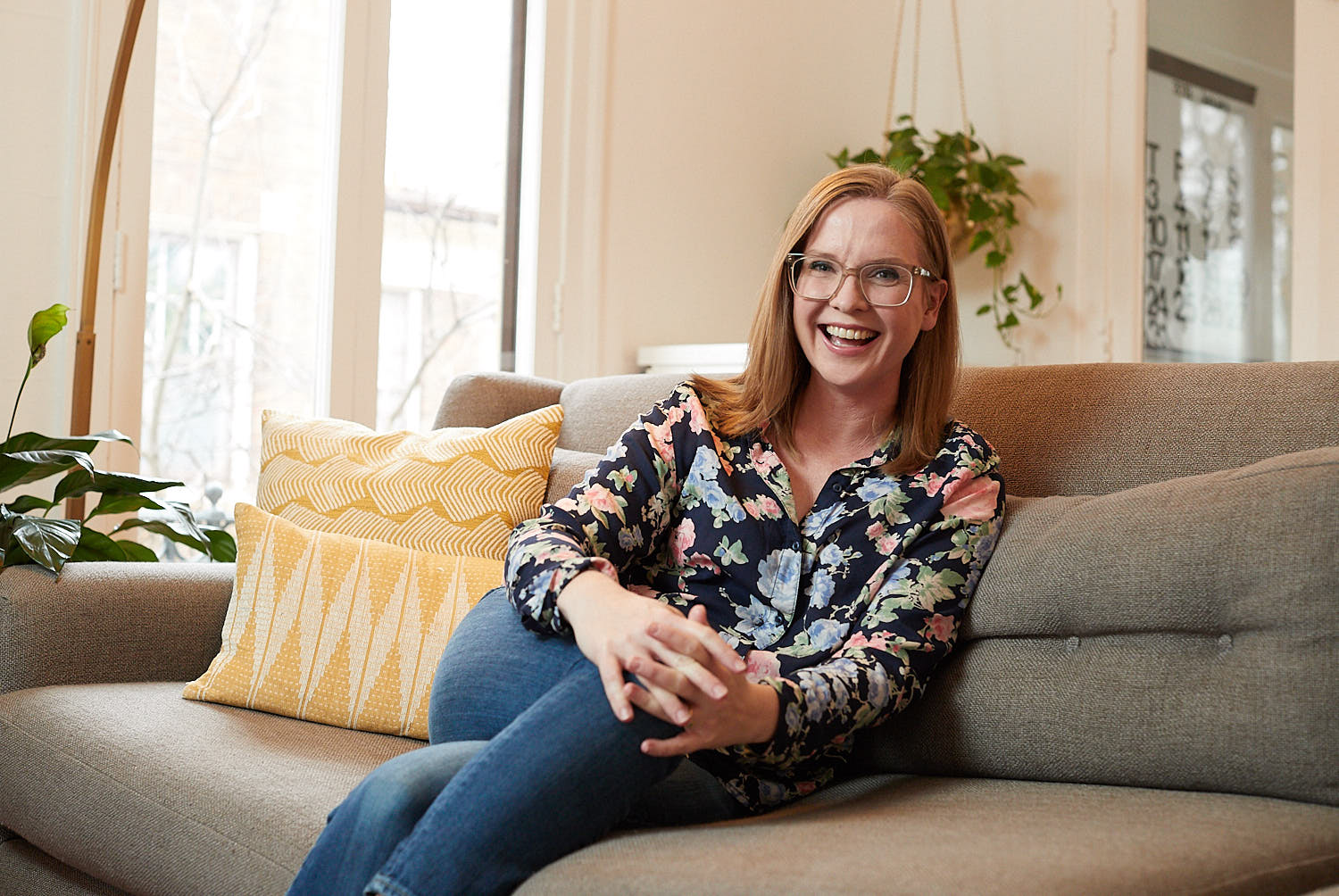The tremors started in early September, I don’t recall when exactly, because at first they were so mild. I wasn’t sure the little shakes in my hands were even real. Did I not sleep enough? Too much coffee maybe? It wasn’t hard to justify the shivers. Looking back, it’s funny how I rationalized it though, because it’s not normal to struggle with fine motor skills.
But it’s not really in me to complain or make excuses. I used to run my own business, which certainly didn’t afford routine sick days. And at the time my mystery symptoms surfaced, I was leading operations at Big Cartel—our CEO’s right-hand woman, responsible for teams across our entire company. It seemed right to power on.
Then the itching kicked in. I blamed it on seasonal change and dry skin. On a call for work—not the type I could walk away from—the itching became more than a nuisance. My skin crawled around my thigh, so I scratched and scratched to relieve the sensation. In that 30-minute call I managed to solve a process problem, remove some roadblocks, prioritize upcoming work, and bruise and bleed my body right through my jeans. A year later, I can still see the scar. Even this incident somehow didn’t ring the alarm, I also failed to connect the severe itching with my tremors (which continued to intensify).
Life went on. We live in Chicago where fall temperatures typically range between 50 and 60 degrees—not quite cold enough to kick on the furnace every day yet perfect for hot coffee and big sweaters. But there I was in October, constantly drenched in sweat. The heat put me in a fiery mood, and my family felt the strain, I had no idea my fits of anger were related to everything else I was experiencing. Over the month my smorgasbord of seemingly-unrelated symptoms piled on: waking up at 2 a.m. to pee, waking up at 3 a.m. to eat, fatigue, more anger, more sweating, more itching. Still, I made excuse after excuse—until my brain stopped working.
In November my thoughts became muddled, my to-do lists incoherent, and my memory fuzzy at best. For months I’d ignored the mounting physical clues but when I started making mistakes at work I knew something was truly wrong. Fortunately, Big Cartel is an amazing company that takes care of its people. I reached out to my boss to request an undetermined amount of medical leave and he didn’t think twice about saying yes.
The next week, I slept almost full days while I waited to see my doctor. I’d never been more tired, and the fear that accompanied my loss of brain power sent me into a dark head space. My doctor’s initial suspicion was that the anti-anxiety medication I’d been taking for the last 6 months was to blame, so we started to wean me off of those meds. In the meantime, her lab took some blood and ran a full panel of tests, just in case. Just 24 hours later, she called to tell me she’d never seen TSH levels so low and that my thyroid was “very hyperactive.” I started on a low dose of antithyroid medication, was referred to an endocrinologist, and went down a Google search rabbit hole trying to figure out what was happening to my body.
Turns out, once I knew what to search for my diagnosis was obvious. I had almost every symptom listed for Hyperthyroidism. I was textbook. Now that I knew my symptoms were real, I made sure to properly address them. When I was hungry 1,000 times a day, I ate. When I was tired, I slept. When I was hot, I took a cold shower. And when I was angry, I cooled off alone. I was so fortunate to have a job that valued my mental and physical health enough to let me manage my illness away from work, and also once I returned after a couple of weeks off. My meds still hadn’t kicked in, but having understanding bosses and an empathetic team meant I could step away as needed to prioritize my health.
Fast forward a month and my endocrinologist officially diagnosed me with Graves Disease. We’ve tried a variety of doses for my meds and have settled on one that is working. My blood is drawn and tested every 6 weeks to make sure my thyroid is functioning normally, and my smorgasbord of symptoms are a relic of another time. But the experience of dealing with such strange and frightening path to diagnosis has left with some empowering life-lessons.
It’s okay to dial it back
Those of us that identify as high-achievers may have a hard time slowing down, and dialing it back. My path to diagnosis taught me that powering through sickness, be it a cold, flu, or auto-immune disease isn’t a sign of strength, it’s just setting a bad example. At worst it’s physically or mentally harmful. I’ve been teaching myself that it’s okay to not always be at 100%, and I dial it back as my health requires.
Self-care is not optional
Yes, it’s a privilege to prioritize health, but that doesn’t mean self-care is frivolous. This is more than simply listening to our bodies. I heard every one of my symptoms very clearly—I just didn’t give them my full attention. Now I do one small, slightly luxurious thing every two weeks to make sure I check in with my whole self. I get a manicure to make sure that my hands are not experiencing tremors. It forces me away from my phone for an hour during prime mid-morning alertness. At the salon, I watch my hands closely: are they strong? Do they shake? Am I in control? Then I check in on the rest of myself, from my brain to my toes.
Weakness can be powerful
Shortly after my diagnosis, Big Cartel’s co-owners asked me to take over as CEO, and I happily accepted. Grateful for their immense support through my health scare, I resolved to lead with similar empathy and vulnerability. It’s not easy to talk openly about my auto-immune disease and confusing path to diagnosis. But in doing so, I show my team of 36 that it’s okay to be a human with flaws and unexpected hurdles. I want them to prioritize their health, too. We have a generous medical leave policy and when my team knows that their head boss has used it recently, I know I’ve set a positive example and encouraged them to take charge of their lives.


